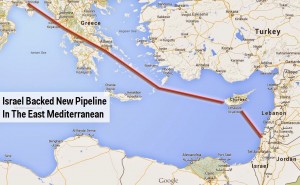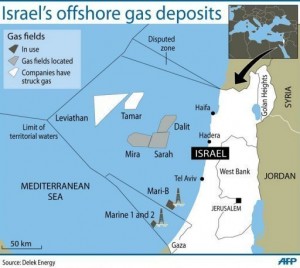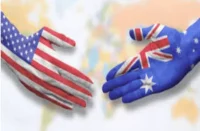Please read “Israel And The Multipolar Bag Of TRICs” beforehand for context
With Turkey and India’s interactions with Israel out of the way, it’s now appropriate to focus solely on the intersection of Russian-Israeli-Chinese relations, no matter how unwilling of a participant Israel may be to this trilateral arrangement. As explained above, Israel is under the perception that it is dealing solely with China through its bilateral relations, but the thing is, Moscow is also playing a role here whether Tel Aviv likes it or not. While it may have earlier seemed that Russia is resorting to the realm of political and economic optimism (and naivety) to advance its interests, this couldn’t be further from the truth, since it’s making significant strategic strides to support it and its Chinese partners’ larger goals.
Let’s take a look at the three-stage approach at play here followed by its possible consequences:
Israel’s Pipeline Potential (And Lack Thereof)
The first thing to understand is that Israel, through the Tamar and Leviathan gas fields, wants to position itself as a non-Russian alternative to natural gas for Europe. It can never conceivably rival Russia, but in this era of economic and political hyper-Russophobia, ideologically indoctrinated Europe is definitely interested in receiving Israeli supplies, however miniscule (8-12 bcm compared to the Old South Stream’s 60 bcm). It envisions the construction of a trilateral Israel- Cyprus-Greece pipeline, fed by Israel’s gigantic Leviathan gas field, that could also involve a link-up with Libya (which has the fourth-largest gas reserves in Africa) via Crete to create a ‘super pipeline’. However, despite the geopolitical attractiveness of this ‘pipe dream’ (pun intended), it may remain a fantasy for years due to its economic unviability and the potential for territorial destabilizations (both maritime and over Cyprus) that could sink the project.
Cyprus-Greece pipeline, fed by Israel’s gigantic Leviathan gas field, that could also involve a link-up with Libya (which has the fourth-largest gas reserves in Africa) via Crete to create a ‘super pipeline’. However, despite the geopolitical attractiveness of this ‘pipe dream’ (pun intended), it may remain a fantasy for years due to its economic unviability and the potential for territorial destabilizations (both maritime and over Cyprus) that could sink the project.
Even if the project is finally built (should prices rebound, the EU’s ideology gets the best of it, etc.), then Russia’s ready to play an ace and neutralize the entire endeavor by calling into play its developing partnerships with Greece and Turkey. Addressing Athens, Moscow made a strategic overture to it by saying that it would drop the devastating agricultural counter-sanctions if only Greece left the EU. It’s not important whether this is realistic or feasible at the time being, but what is salient here is that Russia is making a powerful move against what may be the EU’s weakest member state. On top of this, China is using the Greek port of Piraeus as the starting node for its Balkan Silk Road, thus further enticing Greece towards the multipolar world. Concurrently, Russia could realistically use this Greco-Sino opening to press for a resurrection of South Stream, which would imply the existence of a deep level of strategic partnership between Russia and Greece & Turkey (the latter two are already working together for the TANAP pipeline, despite their historic differences).
Clogging The Pipe
Thus, Russia would handle one problem with two solutions – it could cancel out the ‘anti-Russian’ component of any future Israeli-Cypriot-Greek pipeline by co-opting Greece (with China’s help) or it could use the developing Russian-Turkish Strategic Partnership to implicitly support any of Ankara or its North Cypriot proxy’s claims that may indefinitely delay the pipeline’s construction. Looked at from an opposite perspective, it may even be that the Russian-Chinese Strategic Partnership could play a constructive role in resolving Cyprus’ decades-long via each of its members’ relationships with Greece and Turkey respectively, which could then transition the island away from the unipolar world and closer into the embrace of the multipolar one. Either way, such scenarios (which may still be quite a few years away) would ‘clog the pipe’ and make the EU reconsider whether it is worth the hefty investment to surmount the political-legal-economic obstacles and create another potentially Russian-influenced pipeline (especially if Gazprom pulls a surprise and somehow gains influence over its Greek counterpart).
Releasing the Backflow
In any of these cases, Israel would still have the excess gas but not the realistic opportunities to sell it to Europe directly. It can of course use LNG, but with Russia in control of Tamar’s exports (and Leviathan delayed amid anti-trust measures and its main partner having already pulled out), it would be a self- defeating purpose for the EU to purchase such resources (although it still likely will regardless). Sales to Mideast countries like Egypt and Jordan are on the horizon and definitely to Israeli’s long-term strategic advantage, but unforeseen regional developments or wide-scale domestic protest could scuttle them or make them politically impossible further in the future. Even if this doesn’t come to pass, there may be more profitable partners elsewhere, particularly in Asia, and Israel is still expected to have extra gas to sell.
defeating purpose for the EU to purchase such resources (although it still likely will regardless). Sales to Mideast countries like Egypt and Jordan are on the horizon and definitely to Israeli’s long-term strategic advantage, but unforeseen regional developments or wide-scale domestic protest could scuttle them or make them politically impossible further in the future. Even if this doesn’t come to pass, there may be more profitable partners elsewhere, particularly in Asia, and Israel is still expected to have extra gas to sell.
This is the exact point where the Russian-Chinese Strategic Partnership most clearly comes into the mix. The two may have coordinated together up until this point to resurrect South Stream (which would make Israeli gas unneeded in Europe) and/or block the Israeli-Cypriot-Greek pipeline (if the idea doesn’t fail on its own), thus creating the conditions where Israeli would have to look East, not West, to sell its gas. The Red-Med line of the Silk Road connects to the city of Ashdod, which incidentally is also where Tamar’s gas goes before Russia liquefies it. Given that the infrastructure is already at the port, it’s foreseeable that Leviathan’s supplies will also connect there as well. This opens up the distinct possibility that Russia could turn both fields’ gas to LNG before it’s loaded on rails and sent to the Red Sea for shipment to China or elsewhere in the Asia-Pacific. It’s not realistic that Gazprom’s Ashdod terminal would be neglected in order to build a pipeline across the desert and a new Israeli-or-other-owned LNG facility on the Red Sea when Russia’s capability currently exists on the Mediterranean coast.
The Spillover Effect
Thus, whether or not Israel had anticipated itself being in this situation, it is left with the following (profitable) three-step arrangement:
- Israel extracts the gas
- Russia liquefies it
- The Red-Med line sends it to the Red Sea for shipment to China
Israel fulfills the role of the supplier, Russia is the intermediary (but technologically necessary) state that facilitates the transaction, and China becomes the customer. The newfound relationship that develops could lead to a political spillover effect that may give the Russian-Chinese Strategic Partnership the narrow window of opportunity to attempt the (very) difficult process of taming Israel’s regional actions (if they so choose to initiate this and aren’t distracted by profits). Israel will always behave in a unipolar fashion to some extent or another (as it never tires of reminding the world) largely due to its military might and nuclear arsenal, but taken over a long-term period, it could be possible for Russia and China to moderate that through their future influence.

The stereotype is that the US and Israel are very close allies (and this is still true despite their selectively and strategically deployed ‘fallouts’), but just as Turkey and India are engaging in multipolarity by working with the ‘unipolar enemy’, so too may Israel seek to diversify its relationships and work with the ‘multipolar enemy’ to promote its own interests. It shouldn’t be immediately dismissed that such a change can occur with time, as Turkey’s pivot also took many observers by surprise, and although appearing unlikely today, it may seem like a foregone conclusion in hindsight, just as Turkey’s now appears.
It’s unknown which of today’s challenges will still be present during that forthcoming time (the War on Syria may be resolved for better or for worse, while the opposition to Iran is predicted to be a regional constant for some years to come), but regardless, Russia and China are expected to use the seeds of influence they planted with Israel long before then to reap the fruits of benefit for their regional allies. It may not always succeed, but such efforts would still be an improvement from the current situation whereby neither giant has a stable footing in the country. In fact, it may even turn out to be that Israel’s future leader could be the direct descendant of Russian Jews, which would then open up a personal connection with Russia (especially if the cultural and linguistic roots remained largely intact) that could be used for both parties’ benefit (and tangentially, perhaps even for Russia and China’s allies).














Pingback: Israele e il multipolarismo dei TRIC | Aurora
Pingback: The Russian-Chinese Strategic Partnership Strikes Israel | NA Institute
Pingback: ASEAN And The New Cold War Battle For Eurasia’s Economic Future (I) | Oriental Review
Pingback: Hybrid Wars 6. Trick To Containing China (I) | Oriental Review
Pingback: Hybrid Wars 6. Trick To Containing China (I) | Réseau International (english)
The Russian-Chinese Strategic Partnership Strikes Israel
Pingback: Why is China choosing to partner with Israel and Saudi Arabia? – Emma Olive
Pingback: Hybrid Wars 6. Trick To Containing China (I) – OrientalReview.org